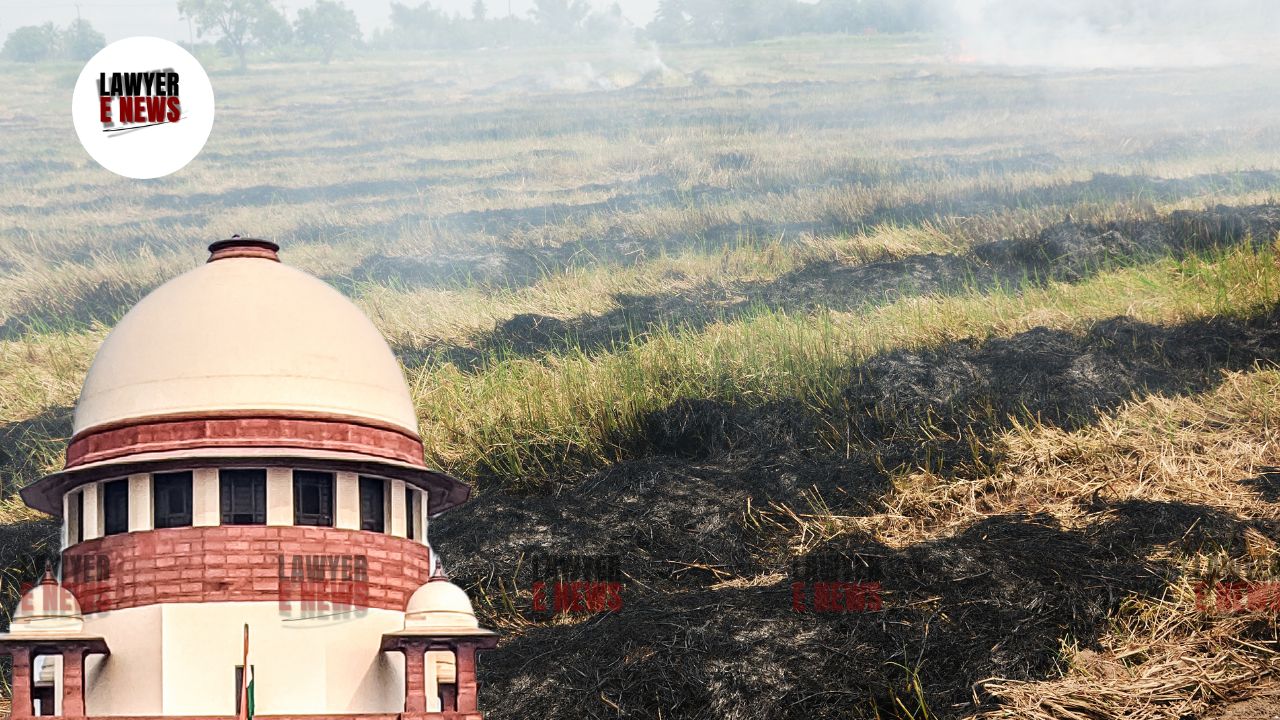-
by Admin
15 February 2026 2:16 AM



On Wednesday, October 16, the Supreme Court reprimanded the states of Haryana and Punjab for their failure to address the issue of stubble burning, which continues to degrade air quality in the Delhi-NCR region. The bench, comprising Justices Abhay S. Oka, Ahsanuddin Amanullah, and Augustine George Masih, expressed dissatisfaction over the lack of action and ordered the Chief Secretaries of both states to appear before the court on October 23.
The court pointed out that despite a 2021 directive from the Commission for Air Quality Management (CAQM) aimed at curbing stubble burning, the states have not implemented the necessary measures. “The problem has existed for decades, and yet the states are still struggling to find a solution,” the court stated, criticizing the reluctance to act.
Justice Oka questioned the Haryana government on its failure to prosecute those violating the CAQM orders. He highlighted the state's lack of enforcement, noting that despite receiving precise fire location data from ISRO, no substantial penalties have been imposed. “Why is there hesitation in prosecuting violators?” Justice Oka asked.
The court further observed that Haryana had not taken any penal action as required by the CAQM’s June 2021 directive. It ordered the state to hold officials accountable for non-compliance, invoking relevant sections of the CAQM Act.
Punjab also faced similar scrutiny. Justice Oka told the Advocate General of Punjab that the state was tolerating violations, despite having issued a notification in 2013 banning the burning of paddy straw. The Advocate General admitted challenges in enforcing the law, but the bench noted that out of 267 reported fire incidents, only 122 violators had faced action, with minimal fines or FIRs.
The court also criticized Punjab for misleading statements made during the previous hearing. On October 3, the state had falsely claimed it had submitted a funding proposal to the central government to provide equipment to small farmers. The court expressed dismay that no such proposal had been made and demanded an explanation from the Punjab Chief Secretary during the next hearing.
Additionally, the Supreme Court questioned the qualifications of CAQM members and their expertise in handling air pollution issues. Justice Oka suggested that the commission engage with external experts to effectively address the pollution crisis. The court called for a report from the CAQM on its plans to ensure state compliance and warned that action might be taken against members who consistently remain absent from meetings.
MC Mehta v. Union of India (WP (C) 13029/1985), will continue on October 23.
